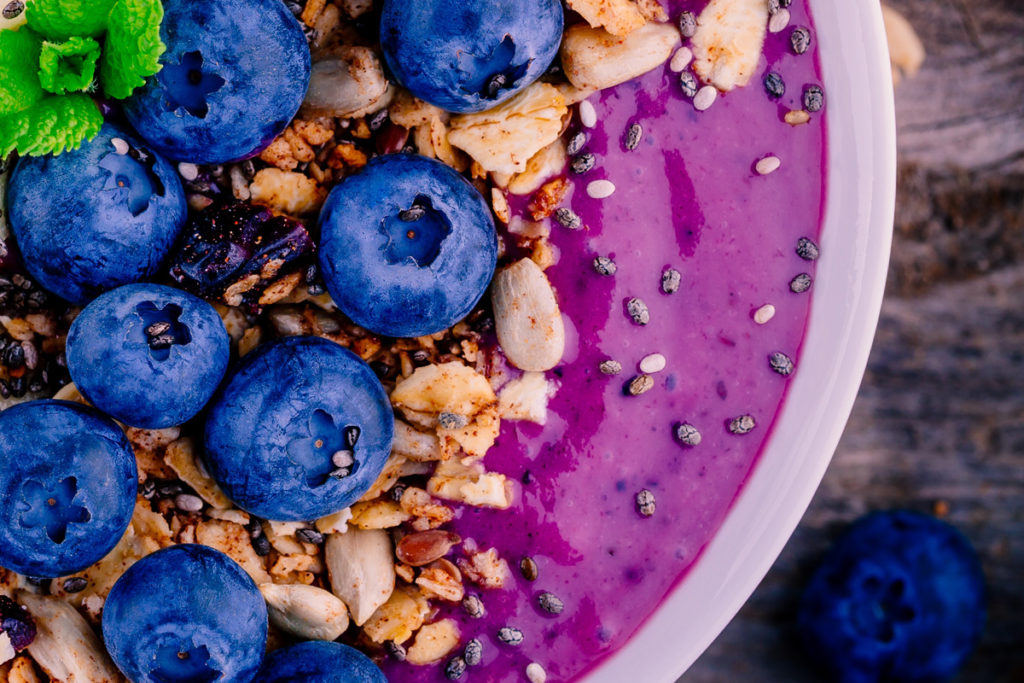Archive for September 2019
Maternal Weight and Pregnancy Complications
Encourage your pregnant clients (if cleared by their doctors) to keep working out with you. A new study shows that maintaining a healthy weight before and during pregnancy is a key factor in avoiding pregnancy complications.
Read MoreFirst-Time Marathon Training Has Anti-Aging Effect
Here’s a good reason to encourage your midlife clients to try an inaugural running event. First-time marathon runners who trained for 6 months saw a 4-year reduction in arterial age, according to study findings presented at EuroCMR 2019, a scientific congress of the European Society of Cardiology.
Read MoreCaffeine—An Equal Opportunity Ergogenic Aid
Caffeine is known to increase performance when taken before endurance activities, but more than 80% of studies have focused on men. A recent randomized, double-blind, crossover study out of Queensland, Australia, aimed to determine whether or not gender affects ergogenic responses to caffeine.
Read MoreMinimalist Shoes and Stronger Foot Muscles
Minimalism is trending in many areas of life, including athletic shoes, with many fans touting numerous benefits. But does the evidence support the hype? Yes, according to research findings published in Medicine & Science in Sports & Exercise (2018; doi:10.1249/MSS.0000000000001751). Walking in minimalist shoes is as effective as foot-strengthening exercises and may result in better compliance than doing specific exercises.
Read MoreSocial Media Influencers Give Inaccurate Health Advice
Have you been frustrated by bad health and fitness advice doled out by social media influencers? You’re not alone, and if you sense that much of the popular online health information is wrong, you’re right! A recent study of key U.K. social media influencers’ weight management blogs—presented at the European Congress on Obesity in Glasgow, Scotland, in April 2019—showed that most influencers were not reliable weight management resources.
Read More2019 IDEA World Fitness Awards Recipients
Veteran fitness pros know how important it is to pay attention to clients as unique individuals. Experience, education and empathy are key qualities that equip seasoned pros to help a wide variety of people with diverse needs.
Read MoreNew York Public Schools Trim the Meat
If the influx of no-beef burgers into supermarkets hasn’t convinced you that plant-based eating has gone mainstream, then perhaps Monday’s fare at New York City school cafeterias will. Starting this fall, more than 1 million students enrolled in the city’s public school system are only finding vegetarian breakfast and lunch options in cafeterias as part of the Meatless Monday campaign, says New York City Mayor Bill de Blasio.
Read MoreIs It Time to Replace Fruit Juice With Whole Fruit?
It’s not breaking news that consuming too many sugar-sweetened beverages is bad for our health. Now, findings from a large cohort study involving more than 13,000 American adults ages 45 years and older suggests that drinking glassfuls of OJ may not be such a good idea either. As reported in JAMA Network Open, for each additional daily 12-ounce serving of fruit juice consumed, there was a 24% increase in the risk for all-cause mortality.
Read MoreProcessed Food Linked to Weight Gain
Over the past several decades, fast-food and processed/packaged foods made with cheap ingredients like white flour and salt have come to dominate the American diet. While an established link between eating too much junk food and obesity has been made, there is still a need for more research to suss out the reasons why.
Read MoreSoda Tax: Drink Pop, Pay More
Love sodas or loathe them, it’s becoming harder to ignore the impact that a “soda tax” can have on consumption rates. A tax of 1.5 cents per ounce of sugary drinks sold in Philadelphia, implemented in 2017, resulted in a 51% drop in sales compared with the previous year, although that figure was partially offset by a rise in sales in neighboring no-tax towns, according to research published in JAMA.
Read MoreTeen Rebels Turn Away From Junk Food
We’ve long known that junk food marketing shapes the way our youth eat. After all, on any given day teenagers are exposed to a lot more advertisements for candy bars and soda than, say, cauliflower. Such is the power of food marketing on the growing brain. Now, a study in the April 2019 issue of Nature Human Behaviour has found that tapping into the rebellious inclinations of teenagers may get them to eat more salads.
Read MorePesticides and Produce
The eco-minded nonprofit Environ?¡mental Working Group recently released this year’s update to its popular Shopper’s Guide to Pesticides in Produce™. Their Dirty Dozen™ list ranks conventionally grown fruits and vegetables that, according to their analysis of available data, tend to contain the highest concentration of pesticides and/or the greatest number of different pesticides. For instance, more than 90% of kale samples had two or more pesticide residues.
Read MoreDelicious Danger? A Research Update on Artificial Sweeteners
In human evolution, the preference for sweet taste was beneficial, since it helped to direct newborns toward eating nutritious food. Recent advances in medicine and nutritional sciences suggest that reducing intake of products high in sugar and salt could improve public health. Nevertheless, many people adore sweets and, therefore, artificial sweeteners (AS)—food supplements with chemical structures different from sugar—made their way onto the market.
Read MoreHaving the Bone Health Talk With Clients
Clients may ask you about calories or how to “tone,” but how often do they ask questions about bone health and osteoporosis? If clients aren’t asking these questions, they should: 54 million adult Americans are at risk of breaking a bone (NOF 2019a). You probably already know that people who have osteoporosis should do weight-bearing exercises to slow the degradation and ease the effects. However, most people are given no more explanation than that. You may be in a position to offer answers to some of your clients’ questions.
Read MoreMuscle Cramps? Find Out Why
Muscle cramps can stop athletes in their tracks. Although they usually self-extinguish within seconds or minutes, the abrupt, harsh, involuntary muscle contractions can cause mild-to-severe agony and immobility, often accompanied by knotting of the affected muscle (Minetto et al. 2013). And cramps are common; 50%–60% of healthy people suffer muscle cramps during exercise, sleep or pregnancy or after vigorous physical exertion (Giuriato et al. 2018).
Read MoreMyths About Meal Timing and Frequency
Which is better: eating five or more small meals or fasting for 16 hours a day? There are a lot of opinions about the optimal timing of meals. Whether your clients are trying to lose weight or gain muscle, chances are they have heard of meal frequency and meal timing, which are common terms used interchangeably to talk about dietary eating patterns. However, all the talk has created a mythology around the “right” way to eat. It’s time to separate myth from reality by looking beyond opinions and focusing on the science.
Read MoreRecipe for Health: Blueberry Granola Pudding
They might be blue, but there appears to be nothing sad about the heart-healthy benefits of blueberries. When British researchers provided 138 overweight and obese people, ages 50–75, with 150 grams (about 1 cup) of blueberries daily or a placebo for 6 months, they found participants eating the berries experienced various improvements in cardiovascular health, including a reduction in arterial stiffness and improved endothelial functioning.
Read MoreOctober 2019 Question of the Month: Can “Clean Eating” Go Wrong?
Although eating nutritious food is an important part of an overall healthy lifestyle, for some people a preoccupation with so-called “clean eating” can become physically and socially damaging.
Read MorePut Down the Phone While You Grocery Shop
It’s not a good idea to be a distracted driver when pushing your shopping cart. A study with modern-day relevance found that people who used their phones for “shopping-unrelated” tasks—like scrolling through a social media feed or volleying text messages with a friend—purchased more unplanned items than people who didn’t use their phones while grocery shopping. And were those items a head of broccoli or a pint of blueberries? No, the purchases were mostly nutritionally poor, packaged foods.
Read MoreAsk the RD: If I Eat Less Meat, Am I Missing Out on Iron?
Question
I am eating less red meat and more plant-based meals. Am I missing out on iron?
Answer
Red meat is a great source of iron, zinc and other trace minerals. So are other animal foods, including poultry and seafood. Iron is an essential mineral that is part of hemoglobin in blood and myoglobin in muscle, the proteins that transport oxygen through the body.
Read More


















